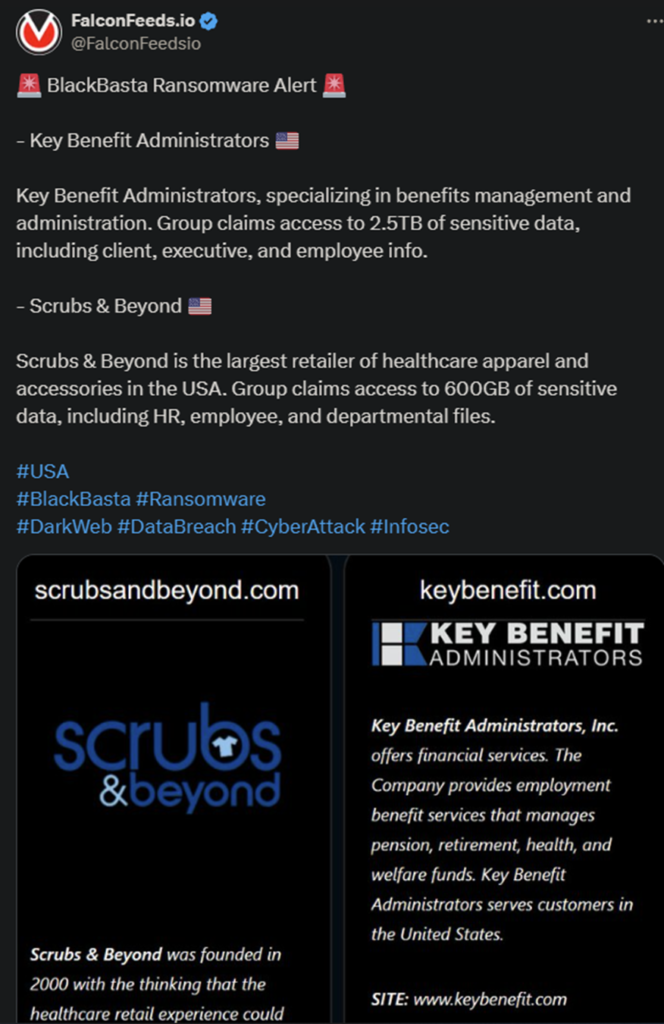Black Basta Steals Vast Amounts of Data from US Companies
Black Basta hackers have announced two other victims today. According to the original post, the hackers have managed to steal 600 GB of data from one victim and 2.5 TB of data from the other. No other details regarding the ransom or the negotiations have been posted.
- The victims are Key Benefit Administrators, who lost 2.5 TB of confidential data, and Scrubs & Beyond, who lost 600 GB
- Some of the stolen data includes HR and employee files, along with departmental information, according to the hackers’ post
- Black Basta has operated as a RaaS (ransomware-as-a-service) since 2022, and it’s currently one of the most active actors in the ransomware sphere
- Black Basta relies on targeted attacks, unlike typical spray-and-pray techniques used by many other ransomware actors
None of the victims have commented on the recent attacks, as is typically the case. Experiencing a ransomware breach and losing a lot of confidential data doesn’t look good for the company’s cybersecurity reputation. It can also lead to legal issues.
The company is responsible for any data leak that occurs in its systems. Which, in other terms, means it’s also legally liable for any issues that may arise as a result. This is especially concerning when the leaked data includes information about employees and clients.

The Black Basta hackers didn’t provide any information regarding the value of the ransom or the terms of negotiations. As is usually the case, these pieces of information are most likely transmitted to the victim directly.
The aftermath of a ransomware breach is always detrimental to the victim in one form or another. Part of that relates to the actual financial losses related to the ransom itself. But that’s not all.
What to Expect After Being Targeted by a Ransomware Attack
Ransomware attacks are particularly devastating because most of them rely on the double-extortion method. The hackers will encrypt the victim’s systems and steal valuable data to use as leverage during negotiations. Black Basta operates similarly.
The hackers will leave behind a ransom note containing details on how the victim can contact them. The ransom is typically paid in cryptocoins in the attackers’ crypto-wallet.
But the downfalls of a ransomware attack aren’t limited to the system encryption and the direct financial losses. Other issues will arise from it. One of them includes the fact that your data has been leaked, which means it has been compromised forever.
Even if you do pay for the hackers to delete it, you have no guarantees that they will. Or that they don’t share it with other cybercriminal organizations first. Which tends to happen more often than not.
Then there’s the problem that we’ve already mentioned: the legal aspect of it. Losing sensitive data linked to your employees or clients is bound to attract legal liability. This is one of the reasons why some ransomware victims refuse to report the data breach.
The conclusion is simple: invest in strong cybersecurity and leave nothing to chance.
Our Mission
We believe security online security matters and its our mission to make it a safer place.

